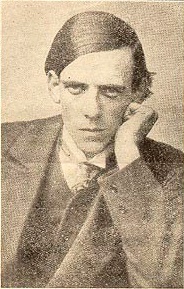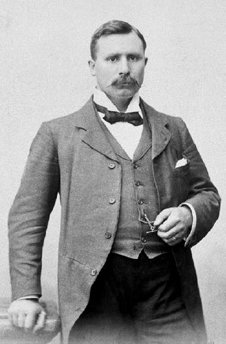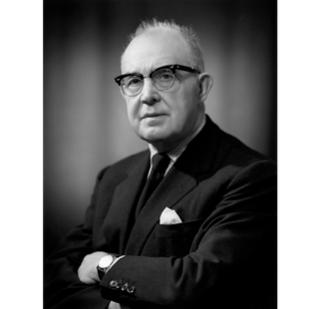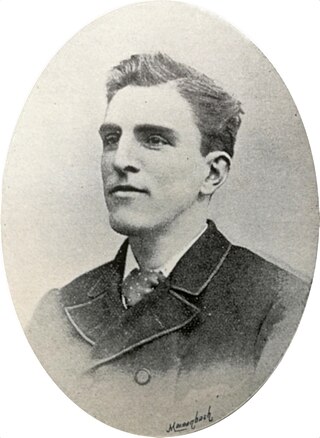Related Research Articles

The Independent Labour Party (ILP) was a British political party of the left, established in 1893 at a conference in Bradford, after local and national dissatisfaction with the Liberals' apparent reluctance to endorse working-class candidates, representing the interests of the majority. A sitting independent MP and prominent union organiser, Keir Hardie, became its first chairman.

James Maxton was a British left-wing politician, and leader of the Independent Labour Party. He was a pacifist who opposed both world wars. A prominent proponent of Home Rule for Scotland, he is remembered as one of the leading figures of the Red Clydeside era. He broke with Ramsay MacDonald and the second minority Labour government, and became one of its most bitter critics. As the leader of the Independent Labour Party (ILP), he disaffiliated the ILP from the mainstream party in 1932. Afterwards, he became an independent dissident outside front-line politics.

Margaret Grace Bondfield was a British Labour Party politician, trade unionist and women's rights activist. She became the first female cabinet minister, and the first woman to be a privy counsellor in the UK, when she was appointed Minister of Labour in the Labour government of 1929–31. She had earlier become the first woman to chair the General Council of the Trades Union Congress (TUC).

Thomas Mann, was an English trade unionist and is widely recognised as a leading, pioneering figure for the early labour movement in Britain. Largely self-educated, Mann became a successful organiser and a popular public speaker in the British labour movement.

Elizabeth Margaret Braddock was a British Labour Party politician who served as Member of Parliament (MP) for the Liverpool Exchange division from 1945 to 1970. She was a member of Liverpool County Borough Council from 1930 to 1961. Although she never held office in government, she won a national reputation for her forthright campaigns in connection with housing, public health and other social issues.

The Sheffield Trades and Labour Council, usually known as the Sheffield Trades Council, is a labour organisation uniting trade unionists in Sheffield.

Arthur Creech Jones was a British trade union official and politician. Originally a civil servant, his imprisonment as a conscientious objector during the First World War forced him to change careers. He was elected to Parliament in 1935 and developed a reputation for interest in colonial matters, gaining the nickname "unofficial member of the Kikuyu at Westminster". He served in the Colonial Office in the Labour government of 1945–1950. After losing his seat in the 1950 general election he was involved in writing and lecturing about British colonies, before returning to Parliament in 1954. Initially, he was known as Arthur Jones, but throughout his time in politics he invariably used his middle name.
Frederick George Barton was a British socialist politician.
Edward Frank Wise CB was a British economist, civil servant and Labour Party politician. He served as a Member of Parliament (MP) from 1929 to 1931.

Alfred Barton was a British socialist politician.
Rowland William Casasola, known as "Roland", was a British trade unionist and political activist.
William Martin Haddow was a Scottish socialist activist.
William Shaw was a Scottish trade unionist and politician.
George Peet was a British communist activist and trade unionist.
James Allen Skinner was a British pacifist and trade unionist.
Matthew Burrow Farr was a British trade unionist and Labour Party politician.
Zephaniah Hutchinson was a British trade unionist and political activist. Known as the leading left-wing activist in the Lancashire cotton trade unions, he served for 28 years as leader of the Bacup Weavers' Association.

William Leonard Hall was a British trade union leader, journalist, and socialist activist, who held prominent positions in the Independent Labour Party.
William Thomas Colyer (1883-1956) was a British socialist activist.
Jesse Butler was a British trade unionist and politician.
References
- 1 2 Clinton, Alan (1984). Post Office Workers. George Allen and Unwin. p. 212. ISBN 0043310869.
- ↑ Harrison, Royden (1971). "The War Emergency Workers' National Committee, 1914–1920". Essays in Labour History.
- ↑ Ward, Paul (1998). Red Flag and Union Jack: Englishness, Patriotism, and the British Left. Boydell and Brewer. p. 212. ISBN 0861932390.
- ↑ "The Ally Socialist Conference". Manchester Guardian. 27 August 1917.
- ↑ "[untitled article]". Manchester Guardian. 31 January 1921.
- ↑ Wrigley, Chris; Shepherd, Jonathan (1991). On the Move: Essays in Labour and Transport History. A&C Black. pp. 171–175. ISBN 1852850604.
- ↑ "Printing Trades' Alliance". The Times. 13 March 1939.